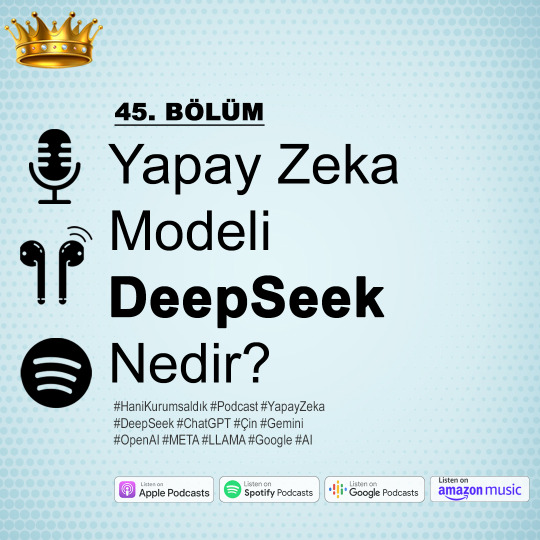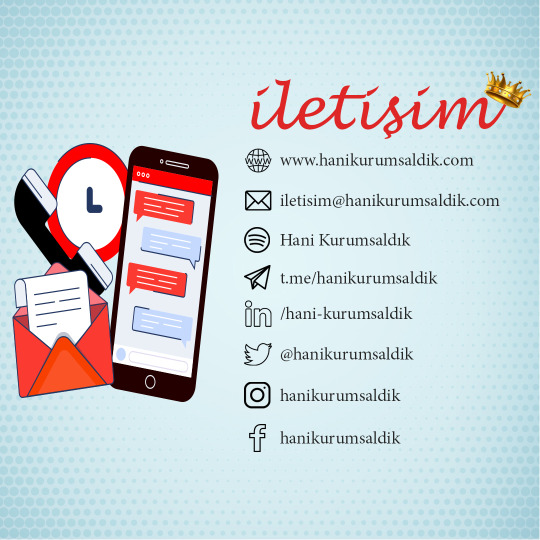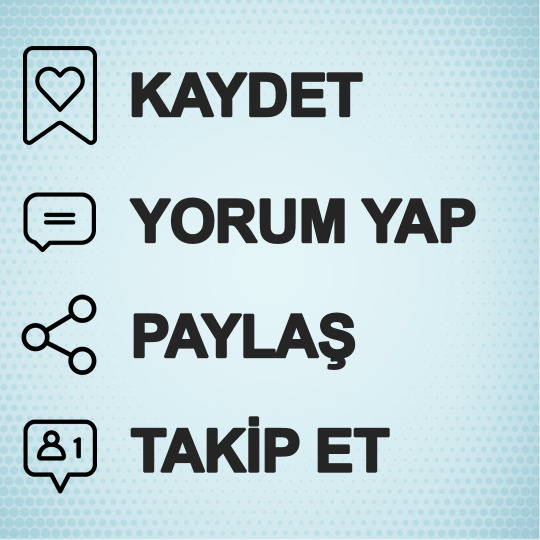#Meta and Microsoft
Explore tagged Tumblr posts
Text
Meta and Microsoft Unveil Llama 2: An Open-Source, Versatile AI Language Model

In a groundbreaking collaboration, Meta and Microsoft have unleashed Llama 2, a powerful large language AI model designed to revolutionise the AI landscape. This sophisticated language model is available for public use, free of charge, and boasts exceptional versatility. In a strategic move to enhance accessibility and foster innovation, Meta has shared the code for Llama 2, allowing researchers to explore novel approaches for refining large language models.
Llama 2 is no ordinary AI model. Its unparalleled versatility allows it to cater to diverse use cases, making it an ideal tool for established businesses, startups, lone operators, and researchers alike. Unlike fine-tuned models that are engineered for specific tasks, Llama 2’s adaptability enables developers to explore its vast potential in various applications.
Microsoft, as a key partner in this venture, will integrate Llama 2 into its cloud computing platform, Azure, and its renowned operating system, Windows. This strategic collaboration is a testament to Microsoft’s commitment to supporting open and frontier models, as well as their dedication to advancing AI technology. Notably, Llama 2 will also be available on other platforms, such as AWS and Hugging Face, providing developers with the freedom to choose the environment that suits their needs best.
During the Microsoft Inspire event, the company announced plans to embed Llama 2’s AI tools into its 360 platform, further streamlining the integration process for developers. This move is set to open new possibilities for innovative AI solutions and elevate user experiences across various industries.
Meta’s collaboration with Qualcomm promises an exciting future for Llama 2. The companies are working together to bring Llama 2 to laptops, phones, and headsets, with plans for implementation starting next year. This expansion into new devices demonstrates Meta’s dedication to making Llama 2’s capabilities more accessible to users on-the-go.
Llama 2’s prowess is partly attributed to its extensive pretraining on publicly available online data sources, including Llama-2-chat. Leveraging publicly available instruction datasets and over 1 million human annotations, Meta has honed Llama 2’s understanding and responsiveness to human language.
In a Facebook post, Mark Zuckerberg, the visionary behind Meta, highlighted the significance of open-source technology. He firmly believes that an open ecosystem fosters innovation by empowering a broader community of developers to build with new technology. With the release of Llama 2’s code, Meta is exemplifying this belief, creating opportunities for collective progress and inspiring the AI community.
The launch of Llama 2 marks a pivotal moment in the AI race, as Meta and Microsoft collaborate to offer a highly versatile and accessible AI language model. With its open-source approach and availability on multiple platforms, Llama 2 invites developers and researchers to explore its vast potential across various applications. As the ecosystem expands, driven by Meta’s vision for openness and collaboration, we can look forward to witnessing groundbreaking AI solutions that will shape the future of technology.
This post was originally published on: Apppl Combine
#Apppl Combine#Ad Agency#AI Model#AI Tools#Llama 2#facebook#Llama 2 Chat#META AI Model#Meta and Microsoft#Microsoft#Technology
2 notes
·
View notes
Text
Can Big Tech Keep Getting Bigger in the Age of AI?
America’s digital behemoths face a huge obstacle to growth—their size
— August 2nd, 2023 | Leaders | A Giant Conundrum

Inflatable tech company logos jostling for space. Image: Vincent Kilbride
Can anything stop big tech? After a post-lockdown wobble in 2022, America’s digital giants have come roaring back. Last week Alphabet, Meta and Microsoft all reported robust results in the second quarter, following a stellar set in the first. Between January and June, the three of them together raked in $106bn of operating profits, up by $9bn from the same period last year.
Do not look to regulators to stop their march. Last month a court threw out an effort by America’s trustbusters to block Microsoft’s acquisition of Activision Blizzard, a games developer. Markets have shrugged off other fitful efforts to rein in the tech giants, such as the eu’s new rules for digital markets.
What is more, investors expect the tech giants, with their deep technological insights and even deeper pockets, to capture the spoils of Artificial Intelligence (AI). The share prices of Alphabet, Amazon and Meta are all climbing back towards their peaks of 2021. Those of Microsoft and Apple (which, with Amazon, announces its latest quarterly earnings on August 3rd) are higher than ever.
However, the digital behemoths must still reckon with the most powerful force of all: arithmetic. Big tech’s main limit to growth is its own bigness. In the years ahead that will be big tech’s real challenge.
Alphabet, Amazon, Apple, Meta and Microsoft lord it over American business. The five firms dominate the s&p 500 stockmarket index, collectively accounting for 9% of its sales, 16% of its net profits and 22% of its market capitalisation. Last year their capital spending of $360bn made up over a tenth of all American business investment.
But it is their sustained growth that makes them unique in the history of capitalism. When ExxonMobil and ge were the titans of America Inc in the 1990s and 2000s, their revenues were rising at an average annual rate of 5-6% and their net profits at 5-10% or so. The tech giants’ have been growing at 16% and 13%, respectively, for a decade or more.
To sustain its long-term average sales growth of 28%, Alphabet needs to add $86bn to its top line in 2024, more than any of the s&p 500’s 461 smallest firms generated last year—and a further $111bn in 2025 and so on, year after exhausting year. To keep profits growing at their historical rates, next year Apple and Alphabet must earn an extra $25bn, or roughly a Meta’s worth of net income; Meta must earn a Verizon’s. And then they need to beat their own records all over again.

Maintaining those averages in the long run is surely asking too much. Indeed, growth has already been less blistering of late. But the firms’ bosses and investors are unlikely to settle for a slowdown. If so, they will need to focus on the three main ways that companies have to grow. Could these work for big tech?
The first is to pursue profits, and slim down. Cutting costs, scaling back projects and hiving off non-core units is the go-to strategy for a conventional business seeking to cushion its margins. Big tech may be as unconventional as it gets, but it, too, sees the need for a diet. Apple is the only one of the five giants not to have announced lay-offs this year; the others have sacked more than 70,000 workers, all told. Still, the iPhone-maker has pushed back the launch of some new devices. Alphabet has scotched a few cash-burning moonshots bankrolled by Google search. Amazon has abandoned some physical shops.
A second route to growth is for companies to go all-in on their core businesses. Microsoft’s souped-up ai search engine, Bing, got all the attention earlier this year as a potential Google-slayer. In fact, Bing remains an also-ran in search (the old barb is that its most-searched term was “Google”). But the same Chatgpt-like powers are, with less fanfare, making their way into Microsoft’s corporate offering. Last month it said it would make generative-ai tools available to Office 365 users for an extra $30 a month. Google and Meta, for their part, are investing in ai services for their advertising clients.
The most ambitious growth strategy is to seek new markets. All five firms are encroaching on each other’s turf. Their share of sales in overlapping areas has doubled since 2015, to 40%. Alphabet is elbowing in on Amazon and Microsoft in cloud computing. Amazon and Microsoft are trying their hand at advertising. In June Apple unveiled a virtual-reality headset to compete with Meta, which has so far had that market mostly to itself. All five are also sizing up the last undisrupted markets—including finance, health care and public procurement—that are large enough to make a noticeable difference to their gargantuan revenues. Or, like Microsoft, they may try to buy growth—its $69bn purchase of Activision would bring in annual sales of around $8bn.
None of these approaches is foolproof. Slimming down boosts profits for only a year or two, and comes at the expense of future revenues. Big tech’s main markets—be they for iPhones, digital ads or business software—are no longer reliably growing at 20% or more. Competing against each other brings fresh revenue but compresses margins. Undisrupted markets are often undisrupted for good reason: they are highly regulated and controlled by incumbents, from Wall Street banks to Pentagon contractors. And not even cash-rich big tech can splurge $69bn for an extra few billion of revenue for long.
Down From The Heavens
Perhaps computing will, one day, eat the world. If so, big tech could use its ai prowess to wrest business from incumbents in all manner of industries—eventually. Between today and eventually, the mix of strategies that each company chooses will speak volumes about how it sees itself. A preference for cost-cutting will signal maturity, but also a lack of faith. A hunger for expansion will hint at self-confidence—or perhaps hubris. Shareholders and executives should brace themselves for a period of uncertainty, as old rents are lost and new ones not yet found. Everybody else will enjoy the wealth of products that big tech dreams up to stay ahead. ■
#Big Tech#Leaders#A Giant Conundrum#Digital Giants#Meta and Microsoft#Artificial Intelligence (AI)#Alphabet | Amazon | Meta#Apple#ExxonMobil#Google#Wall Street Banks#Pentagon Contractors
1 note
·
View note
Text
An increasing number of Silicon Valley investors and Wall Street analysts are starting to ring the alarm bells over the countless billions of dollars being invested in AI, an overconfidence they warn could result in a massive bubble. As the Washington Post reports, investment bankers are singing a dramatically different tune than last year, a period marked by tremendous hype surrounding AI, and are instead starting to become wary of Big Tech's ability to actually turn the tech into a profitable business. "Despite its expensive price tag, the technology is nowhere near where it needs to be in order to be useful," Goldman Sach's most senior stock analyst Jim Covello wrote in a report last month. "Overbuilding things the world doesn’t have use for, or is not ready for, typically ends badly."
[...]
According to Barclays analysts, investors are expected to pour $60 billion a year into developing AI models, enough to develop 12,000 products roughly the size of OpenAI's ChatGPT. But whether the world needs 12,000 ChatGPT chatbots remains dubious at best. "We do expect lots of new services... but probably not 12,000 of them," Barclays analysts wrote in a note, as quoted by the WaPo. "We sense that Wall Street is growing increasingly skeptical." For quite some time now, experts have voiced concerns over a growing AI bubble, comparing it to the dot-com crisis of the late 1990s. "Capital continues to pour into the AI sector with very little attention being paid to company fundamentals," tech stock analyst Richard Windsor wrote in a March research note, "in a sure sign that when the music stops there will not be many chairs available." "This is precisely what happened with the Internet in 1999, autonomous driving in 2017, and now generative AI in 2024," he added.
27 July 2024
179 notes
·
View notes
Text

Windows 2004
#pop art#windows#microsoft#nostalgia#facebook#meta#contemporary art#digital art#art#windows 95#windows 2000#technology#social media#warakami#warakami-vaporwave
99 notes
·
View notes
Text
The question shouldn't be how DeepSeek made such a good LLM with so little money and resources.
The question should be how OpenAI, Meta, Microsoft, Google, and Apple all made such bad LLMs with so much money and resources.
#rambles#ai#fuck ai#gen ai#fuck gen ai#deepseek#chatgpt#openai#llm#large language model#apple#fuck apple#fuck openai#meta#fuck meta#microsoft#fuck microsoft#google#fuck google#greed#corporate america#eat the rich
55 notes
·
View notes
Text
Privacy is in a terrible situation right now.
Especially on the internet. You know, Google, Facebook, Microsoft, Twitter(X), Apple, and even Tumblr all collect information about you to show you scarily accurate advertisements among other things.
Why does this matter?
This isn't about hiding information, it's about protecting information. You wouldn't let me know your entire life, your diary, all your photos and text messages, so why do you let random companies do the same?
Privacy Guides - Why Privacy Matters
So how do you stop this?
You can't. But you can lessen this. So I'm going to show you a non-exhaustive list of what I've used and what I know of that may help your privacy. I would recommend you go to privacyguides.org after if you want a better explanation. I'm just here to show you cool things.
Disclaimer
I am not a library on this sort of information and this is what I choose to use. I may be incorrect and you may have differing opinions. Also, this may be too extreme for everybody. Use what works for you. Again, I would recommend you go to privacyguides.org after you read this for a more in-depth and better explanation.
VPNs
You know what a VPN is. You've seen the sponsorships. VPNs are one of the most popular privacy tools, but know that they are not the only tool that you'd need. This list is evidence of that.
I would recommend Proton VPN, Mullvad, and IVPN for most users, as they provide a far better amount of privacy and features than VPNs such as Nord VPN, Surfshark, and Express VPN. If you really want unlimited devices go with Windscribe.
I personally use Proton VPN due to the fact that I use their other services.
Browsers
You should probably know that Google Chrome is basically spyware at this point. The issue here is, almost all Chromium-based browsers are. These include, Edge, Opera, and Vivaldi. The only real exception would be Brave, but they've got leadership issues, which may not be a deal breaker for you.
So what do you use? A Firefox-based browser. This obviously includes Firefox, but most Firefox-based browsers are privacy-focused. The browsers that I recommend are Firefox, Librewolf, the Mullvad Browser, Waterfox, and Brave.
There is also the Tor Browser, but that is a whole 'nother can of worms that I will not go into. All I will say is that if you are in a high-risk environment(such as an oppressive regime) or you need absolutely no one to know that you searched that one thing, you may want to use the browser for anonymity.
I use Firefox as my main browser, with Brave as the browser that I use if something doesn't work on Firefox. I also use Tor if it is a high-risk situation.
Search Engines
Google, Bing, and Yahoo! all log your searches, you need alternatives. This is relatively straight-forward.
I recommend, Qwant, DuckDuckGo, SearXNG, Brave Search, and Startpage. Both Qwant and DuckDuckGo are fairly similar as they both use Bing search results and say that they don't track you. SearXNG is more complex, and I will not go into detail here. If you really want Google search results, use Startpage. And if you don't want your search to rely on Bing or Google, use Brave Search.
I use Qwant, mainly just cause its European.
Passwords
Passwords are the keys to your digital life. And most of the time they're not that great. You know the drill here, make passwords like this- XmaE7PEj2hq9ed$w - but you can't really remember them. For that you need a password manager.
I recommend Bitwarden, Proton Pass, and KeepassXC. Bitwarden and Proton Pass are more convenient, but you are trusting a single entity, reputable ones, but still. KeepassXC isn't as convienent, but you have near full control over what happens to it.
I use Proton Pass, as I use other Proton services.
Email
Email is identity, you almost always use your email in order to register for sites like Tumblr, and sites that aren't anything like Tumblr. Companies like Google, Microsoft, and Yahoo! all use your email inbox in order to gain more information about you for their companies. There are quite a few email providers, but I've only used and recommend two.
I recommend Proton Mail and Tuta Mail. Both are good email providers, although Proton would be better if you use other Proton services, like I do.
I use both Proton Mail and Tuta Mail for separate email addresses.
Aliases
Email Aliases are also very important for private email. Your email is your name, if you want to private, you'd go under pseudonyms. That's what email aliases are.
I recommend and have used Simplelogin and Firefox Relay. Email providers like Proton and Tuta also give you aliases when you pay. I don't know how well these work, but I assume that they work the Same as Simplelogin and Firefox Relay.
I use Simplelogin.
Devices/OSes
Phones
Now let's turn up the extremity to 11 as we look at your devices. Phone-wise, avoid Apple, they say that they care about your privacy, but they don't. Apple is better than Google, but I'd only recommend using an iPhone if you already have one, and it still has support left. If that's the case, then follow privacy guides like this one by Techlore(His channel is also really great for privacy guides). You should probably use a Google Pixel. Sounds weird as it's owned by GOOGLE, one of the companies that we don't want to be tracked by, but if we go with the Pixels we can use custom ROMs.
Most ROMs exist for your privacy, they are based on the Android Open Source Project(AOSP) which means they can run most of your favourite Android apps without messing them up with Google. In order to run most of your apps however, you're going to need some way of running Google Play Services. This is a backbone black-box that Google forces most of your apps to use in order to function. CalyxOS and LineageOS with MicroG both have MicroG, an open source implementation of Google Play Services. GrapheneOS just straight up uses Google Play Services but sandboxes it so that it can't get its tentacles all up in your phone.
I recommend going like this:
You have a modern-ish Google Pixel phone, go with GrapheneOS.
You don't have a Google Pixel, but your phone is still supported by CalyxOS, go with CalyxOS.
Your phone isn't supported by either of these but still is supported by LineageOS with MicroG, go with LineageOS.
Your phone isn't supported by any of these, you can do as much degoogling as you can.
Techlore also has a fantastic guide on Android Privacy.
Desktops/Laptops
Apple isn't actually that bad here, its better than Windows at least. But Linux is KING when it comes to privacy and security. There is definitely a learning curve here. Pin the terminal, you're going to use it a LOT. Also be aware that on Linux you won't have every single app that you're used to. If you don't really want that hassle, just go with Mac.
Linux distros that I recommend(for beginners) are: Ubuntu, Linux Mint, Pop!_OS, and Elementary OS.
I use Ubuntu as it's the only one that I could get working on my computer.
Other Pieces of Advice
Use an Ad-blocker! Ads are terrible for privacy as companies can get their trackers in completely unrelated sites via their ads. I use and recommend uBlock Origin.
Don't use any personally identifying information online. Don't use your real name, a picture of you, your voice. The less you give to the internet, the more private you are.
Mix and Match! Explore what works for you. You might be okay with changing OSes but you might be a bit too reliant on GMail. That's fine! Just use what works.
Again, please go to privacyguides.org after this. This did not even scratch the surface but I hope this was useful to you in some way.
#original#internet privacy#internet#google#microsoft#facebook#meta#twitter#privacy#search engines#browsers#duckduckgo#linux#adblocking#adblock#vpn#proton#simplelogin#tuta#tutanota#apple#hope this helped!
253 notes
·
View notes
Text
“Least Evil” poll HERE
#big tech#tech companies#silicon valley#technology#alphabet inc#google#apple#amazon#meta#facebook#instagram#microsoft#tech sector#tumblr polls
27 notes
·
View notes
Text





Muscle Under the Northern Lights.
NightCafe, Leonardo, Microsoft Designer, Meta, DALL-E
#nightcafe ai#leonardo ai#microsoft designer#meta ai#dall-e#ai generated#ai image#ai muscle#ai art#ai bodybuilder#ai vascularity#northern lights
28 notes
·
View notes
Text
back in the Superwholock days there was this post getting passed around my corner of tumblr about "teflon writing vs velcro writing," ostensibly as a nutshell summary of why fandom reacted so differently to Steven Moffat and Russell T Davies as Doctor Who showrunners: slick and polished and easier to admire (when done well) or coolly assess its flaws (when botched) than to get a grip on or pull apart & tinker with, vs. messy and prickly and grippy and tinkering-friendly and prone to getting its hooks in you whether or not you ever wanted that
and that's very funny to look back on with the distance of hindsight, because to this day--a full decade after peak Superwholock--RTD-era Who and Kripke-era SPN remain THE most insane, crazymaking, irreversible-brain-damage-inducing, "compelling in the way where they make me INCREDIBLY ANGRY and ITCHY TO FIX THEM because i am so stupid-invested that they still have me by the balls, even when my engagement is just picking apart the frustrations of how and why they SUCK" turbo-examples of velcro writing i have ever encountered in my LIFE
hell, they aren't even so much like velcro as they're like snagging the folds of a lace circle skirt on a whole branch of actual cockleburs and trying to wash the shrapnel out with fucking gorilla glue
.....and then there's BBC Sherlock. which was neither velcro writing nor teflon writing but an elaborate many-year con, targeted at the EXACT kinds of people who maintain a secret good Supernatural that lives in their heads, whose one neat trick was to bait its marks into collectively hallucinating a brilliant show so that Steven Moffat and Mark Gatiss never had to put themselves to the trouble of writing one.
#computer tinkerers hear me out: if spn is microsoft windows and doctor who is various *nix distros and moffat-era who is macOS#then bbc sherlock is a fucking chromebook that reply guys SWEAR you can do full-stack software development and advanced image editing on#....if you root it and use some horrible 3rd party script to bolt a linux distro on top of chromeOS and physically install 32gb extra RAM#and even then the filesystem access is all screwy and *you're still doing your image editing in the GIMP*#fandom#superwholock#meta
82 notes
·
View notes
Text
now do this for the rest of tech, oil industry, et al…

dearest beekeepers…
#climate crisis#ai#tech#artificial intelligence#meta#google#microsoft#apple#copilot#midjourney#tesla#chatgpt#grok#openai
8 notes
·
View notes
Text
I Never Have Nor Will I Ever buy Dungeon DLC packs for ESO because any interest in running dungeons died with how often combat skills are overhauled
#elder scrolls#teso#i just ran out of braincells to figure out how to best use my characters cause I don't follow the meta lmao#I play ESO like the mainline games idc about optimal race and classes#also i don't play well with others#the good thing about ESO is you Do Not need to get into every bit of content cause even the base game is A Lot#and chapters end up becoming part of the base game sometimes#like Morrowind and I think Northern Elsweyr?#anyways I'm immune to FOMO and also Don't Buy any ESO stuff rn anyways because Microsoft boycott
4 notes
·
View notes
Text
BE ON THE LOOKOUT FOR BOTNETS USA
#botnet#botnet botnetting itself#botnet botnetting botnets like it#be on the lookout for botnets#be#on#the#lookout#for#botnets#cybersecurity#llama facebook meta#wikipedia#google gemini#microsoft bing copilot#baidu#yandex#dogpile.com#metacrawler#yahoo.com#taylor swift#original timeline#pi day#martin luther king jr#fashoing#melanie martinez#michelle obama#caprica#alice
18 notes
·
View notes
Text
Big tech has made some big claims about greenhouse gas emissions in recent years. But as the rise of artificial intelligence creates ever bigger energy demands, it’s getting hard for the industry to hide the true costs of the data centers powering the tech revolution. According to a Guardian analysis, from 2020 to 2022 the real emissions from the “in-house” or company-owned data centers of Google, Microsoft, Meta and Apple are likely about 662% – or 7.62 times – higher than officially reported.
[...]
Even though big tech hides these emissions, they are due to keep rising. Data centers’ electricity demand is projected to double by 2030 due to the additional load that artificial intelligence poses, according to the Electric Power Research Institute. Google and Microsoft both blamed AI for their recent upticks in market-based emissions.
[...]
Whether today’s power grids can withstand the growing energy demands of AI is uncertain. One industry leader – Marc Ganzi, the CEO of DigitalBridge, a private equity firm that owns two of the world’s largest third-party data center operators – has gone as far as to say that the data center sector may run out of power within the next two years.
15 September 2024
120 notes
·
View notes
Text
“Most Evil” poll HERE
#google#amazon#apple#meta#facebook#instagram#big tech#technology#tech#microsoft#alphabet inc#windows#tech sector#tumblr polls#silicon valley
13 notes
·
View notes
Text
#aiart#ai generated#ai writing#chatgpt#frugallolafinds#artists on tumblr#copilot#meta ai#microsoft designer#folktale week#folklore#shortstory#tales
2 notes
·
View notes
Text









👑 DEEPSEEK NEDİR? I 45. BÖLÜM
Kurumsallaşma, markalaşma ve dijitalleşme ana temalı podcast serisi Hani Kurumsaldık’ın 45. bölümü yayınlandı!
Dijital Markalaşma Uzmanı, Akademisyen ve Yazar Mürsel Ferhat Sağlam tarafından hazırlanıp sunulan serinin bu bölümünde Çin merkezli bir şirket tarafından hayata geçirilen DeepSeek yapay zeka modeli üzerine değerlendirmelerde bulunuldu. DeepSeek’in özellikleri, kuruluş maliyeti, versiyonları, güçlü yönleri, zayıf yönleri ve avantajlarının değerlendirildiği yayında ayrıca DeepSeek ile ChatGPT, Llama, Gemini gibi diğer yapay zeka modelleri arasında karşılaştırma da yapıldı.
Bütünleşik pazarlama ve iş - ekonomi mecrası Branding Türkiye'nin ana sponsorluğunda gerçekleştirilen Hani Kurumsaldık; Spotify, Apple Podcast, Google Podcast, Amazon Music ve YouTube olmak üzere tüm dijital müzik ve video platformlarında!
SPOTIFY 🎧 DİNLE
YOUTUBE 💻 İZLE
WEB SITE 🌎 TAKİP ET
#mürsel ferhat sağlam#branding türkiye#branding türkiye öneriyor#podcast#spotify#podcaster#hani kurumsaldık#türkçe podcast#dijital markalaşma#brandingtürkiye#HaniKurumsaldık#DijitalMarkalaşma#BrandingTürkiye#MürselFerhatSağlam#BütünleşikPazarlama#Spotify#YouTube#ApplePodcast#Podcaster#Podcast#YapayZeka#DeepSeek#OpenAI#Llama#META#Facebook#Microsoft#Teknoloji#Bilişim#Nvidia
5 notes
·
View notes